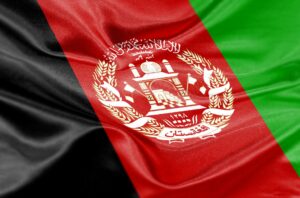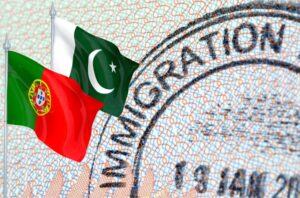Are you an expat or thinking about becoming one? Living abroad can be thrilling and rewarding, often filled with chances for career growth, cultural immersion, and a fresh lifestyle. However, deciding where to move can be intimidating. In this comprehensive guide, we will explore the best countries for expats in 2024, considering factors like quality of life, job opportunities, and cost of living.
We’ll also look into the Citizenship or Residency by Investment Programs in each country.
From the Caribbean islands to Dominica or Portugal, you’ll learn about the top destinations that provide the best expat experience. Let’s make your next move your greatest adventure yet!
The Best Countries For Expats in 2024
1. Portugal
Portugal’s Golden Visa Program provides a pathway to residency and eventual citizenship through property investment, capital transfer, or job creation. Known for its affordable cost of living, rich culture, and high quality of life, Portugal is the number one best country for expats to move to. Coupled with one of the lowest crime rates in Europe, it offers a safe and secure environment for individuals and families alike. Portugal also has a high-quality healthcare system, ranked among the best in the world. Expats with residency status can access public healthcare at low costs, and there are also excellent private healthcare facilities available throughout the country.
For entrepreneurs and business professionals, Portugal presents a conducive environment for starting and running a business. The government offers various support mechanisms for startups, and the country’s strategic location serves as a gateway to the European and African markets.
Portugal offers significant tax incentives through the Non-Habitual Resident (NHR) program, potentially minimizing taxes on foreign income for up to ten years.
Portuguese Residency By Investment:
- Donation to Arts and Heritage:
- Donate USD 270,000 to aid in the creation, restoration, and upkeep of Portugal’s cultural legacy.
- Investment in Scientific Research:
- Invest USD 540,000 in public or private research organizations in Portugal focused on science.
- Investment in Portuguese Funds:
- Invest USD 540,000 in Venture Capital/Private Equity Funds, targeting technology, agriculture, startups, and healthcare sectors.
- Company and Job Creation:
- Option A: Create a minimum of 10 new permanent positions in Portugal (no minimum investment).
- Option B: Commit at least USD 540,000 to establish a commercial entity in Portugal and generate 5 permanent positions.
2. Malta
Malta’s Citizenship by Investment Program provides a robust path to citizenship within a stable EU country, requiring a combination of donations, investments, and real estate purchases. Malta is attractive for its low cost of living, strategic location, and high quality of life. English, alongside Maltese, is one of the official languages of Malta, which significantly eases the transition for English-speaking expats. This linguistic advantage extends to business, education, and daily life, making communication and integration seamless for newcomers.
The healthcare system in Malta is recognized for its high standards, with both public and private healthcare services providing comprehensive care. Expats residing in Malta can access these services, ensuring peace of mind regarding health and well-being.
Malta also has a comprehensive tax system that favors expats through residency schemes and tax incentives.
Malta Citizenship By Investment:
- Donate to the National Development and Social Economic Fund:
- Option A: The main applicant must donate USD 648,000 to the National Development and Social Economic Fund if you applying for citizenship after 36 months of residency. Donate an extra USD 54,000 for each additional dependant.
- Option B: The main applicant must donate USD 810,000 to the National Development and Social Economic Fund if you applying for citizenship after 12 months of residency. Donate an extra USD 54,000 for each additional dependant.
- Real Estate Investment:
- Option A: Invest a minimum of USD 756,000 into an approved property.
- Option B: Rent a property for at least USD 17,280 annually.
- Donation:
- Donate at least USD 10,800 to an approved NGO.
3. Dominica
Dominica is known for its Economic Citizenship Program, one of the most cost-effective paths to second citizenship. One of Dominica’s most attractive features for expats is its favorable tax regime, which includes no wealth, gift, inheritance, or capital gains taxes and no tax on foreign income.
Dominica’s low cost of living, coupled with its lush natural environment, makes it an ideal location for eco-conscious expats. Living in Dominica as a citizen provides you with work rights and global mobility, with visa-free travel to over 140 territories. Additionally, Dominica offers various financial incentives, including generous tax holidays, import duties, and tax waivers.
The Caribbean island is known for its tranquility and low crime rate, offering a safe and secure environment for families and individuals alike. This peace of mind is invaluable for those relocating from more turbulent regions.
Dominica Citizenship By Investment:
- Economic Diversification Fund (EDF):
- Donate USD 100,000 for a single applicant.
- Donate USD 150,000 for a couple.
- Donate USD 175,000 for a family unit, including the main applicant, their spouse, and two dependents (excluding siblings).
- Real Estate Investment:
- Invest a minimum of USD 200,000 into an approved property.

4. Grenada
Grenada’s Citizenship by Investment Program requires a minimum investment in real estate or a donation to the national transformation fund. Grenada offers significant tax advantages, including no taxation on foreign income, wealth, or inheritance. This favorable tax environment can lead to substantial savings for expats and make Grenada an attractive place for wealth management. Additionally, Grenadian citizenship grants access to the USA E-2 visa treaty, allowing business operations in the U.S.
While Grenada is known for its economic benefits to expats, the cost of living in Grenada is generally considered to be moderate, making it an accessible option for many looking to enjoy the Caribbean lifestyle without the high expense often associated with island living.
Grenada is home to St. George’s University, known for its medical school and various undergraduate and graduate programs. This provides opportunities for expats and their families to pursue quality education on the island.
The country is also attractive for its lifestyle, vibrant culture, and the opportunity to invest in growing sectors like tourism. The Caribbean is a premier destination for tourists seeking relaxation, adventure, and the warmth of island hospitality.
Grenadian Citizenship By Investment:
- National Transformation Fund (NTF)
- Donate USD 150,000 to the National Transformation Fund for a single applicant.
- Donate USD 200,000 to the National Transformation Fund for a family of 4 or less.
- Donate an extra USD 25,000 into the National Transformation Fund for any additional dependants.
- Real Estate Investment:
- Invest a minimum of USD 220,000 into shares in real estate projects such as villas, hotels, or resorts.
- Acquire property valued at a minimum of USD 350,000 and maintain ownership for 5 years.
5. Antigua and Barbuda
Antigua and Barbuda, an independent Commonwealth state in the Eastern Caribbean, offers a CBI program that is particularly attractive for wealthy families seeking access to the European and Caribbean markets. Passport holders enjoy visa-free travel to approximately 150 countries, including the U.K. and the Schengen area countries.
The nation’s low tax regime, which includes no capital gains or estate taxes and the absence of a requirement for residency to maintain citizenship, presents significant financial advantages for expats and investors alike.
The cost of living is relatively high but balanced by the quality of life, pristine beaches, and the stable political climate of the Caribbean. The real estate market is robust, offering luxury properties that qualify for the investment program.
Antigua and Barbuda Citizenship By Investment:
- National Development Fund:
- Donate USD 100,000 to the National Development Fund for a family of 4 or less.
- Donate USD 125,00 to the National Development Fund for a main applicant with a family of 5 or more.
- The University of the West Indies Fund (UWI):
- Donate USD 150,000 to the UWI for a family of 6 or less. One family member will be awarded a one-year, tuition-only scholarship at UWI.
- Real Estate Investment:
- Invest USD 400,000 in real estate and hold it for 5 years.
- Invest USD 200,000 each with another applicant in real estate and hold it for 5 years.
- Business Investment:
- Buy an approved business worth at least USD 1.5 million.
- Contribute at least USD 400,000 to an approved business with other parties, totaling USD 5 million together.
6. Greece
Greece offers a Golden Visa Program with a real estate investment of at least EUR 250,000, one of the most affordable in Europe. Expats enjoy a relatively low cost of living, access to high-quality healthcare and education, and a Mediterranean lifestyle. Expats can use both public and private facilities, which offer excellent services at relatively low costs compared to other Western countries.
From the idyllic islands to the mountainous mainland, Greece’s natural beauty is breathtaking. Expats can enjoy pristine beaches, explore ancient sites, and experience the country’s diverse landscapes.
The Greek Golden Visa grants residency and unrestricted access to the Schengen Area, allowing for easy travel within most of Europe. Becoming a resident of Greece provides great travel opportunities and can also lead to citizenship down the road.
Greek Residency By Investment:
- Real Estate Investment:
- Invest USD 270,000 in real estate (areas such as Athens, Thessaloniki, Mykonos, and Santorini will require a minimum spend of USD 540,000).
- Capital Investment:
- Option A: Invest USD 432,000 in government bonds and hold them for at least 3 years.
- Option B: Invest USD 432,000 in corporate bonds, shares, or shares of mutual funds that were established in Greece and then invested within Greece.
- Option C: Invest USD 432,000 in a real estate company that invests only in Greece.
- Bank Deposit:
- Invest USD 432,000 into a term deposit into a Greek bank for at least one year.
- Securities or Venture Capital Investment:
- Option A: Invest USD 864,000 into Greek government bonds and hold them for at least 3 years.
- Option B: Invest USD 432,000 in a venture fund or capital company established in Greece.
- Option C: Purchase at least USD 864,000 of shares, treasury bills, or bonds in Greece.

7. Saint Kitts and Nevis
The Citizenship by Investment program in Saint Kitts and Nevis is the oldest of its kind, offering options for donation or real estate investment. It’s attractive for its tax policies, including no income, inheritance, or gift taxes. The islands offer a luxurious lifestyle with a high but manageable cost of living, making it popular among wealthy expats. Benefits include visa-free travel to 156 destinations, lifetime citizenship, and no minimum stay requirements to maintain citizenship.
Driving the economy, the tourism and real estate sectors present numerous investment and entrepreneurial opportunities. Beyond tourism and real estate, there are opportunities in agriculture, manufacturing, and financial services. The government supports diversification and innovation, making it a conducive environment for starting new ventures.
Saint Kitts and Nevis Citizenship By Investment:
- Real Estate Investment:
- Invest a minimum of USD 400,000 in a condominium unit (and hold for 7 years).
- Invest a minimum of USD 400,000 in shares of an approved hotel or resort.
- Invest a minimum of USD 800,000 in a private home (and hold for 7 years).
- Public Benefit Option:
- Contribute at least USD 250,o00 to an approved public benefactor project.
- Sustainable Island State Contribution (SISC) :
- Donate at least USD 350,000 to the SISC for a single applicant.
- Donate at least USD 400,00 to the SISC for a main applicant plus either a spouse or dependant.
- Donate at least USD 450,000 to the SISC or a main applicant plus a spouse and two dependants or the main applicant plus 3 dependants.
8. Saint Lucia
Saint Lucia’s Citizenship by Investment Program allows expats to invest in government bonds, real estate, or the national economic fund. Saint Lucia offers a favorable tax regime for businesses and individuals, which attracts many expats. There is no capital gains tax, and the island has competitive corporate tax rates and tax incentives for investment in certain sectors.
The quality of life in Saint Lucia is high, with a relaxed pace that is typical of many Caribbean islands. As for healthcare, Saint Lucia’s system encompasses both public and private healthcare options, catering to the diverse needs of its population and expat community. While the wait times at public facilities can be lengthy, the services are provided at no cost. Saint Lucia generally offers a relatively low cost of living, particularly when compared to other Western countries.
The real estate market is diverse, offering everything from luxury villas to more affordable options.
Saint Lucian Citizenship By Investment:
- National Economic Fund:
- Contribute at least USD 100,000 into a non-refundable fund to the National Economic Fund for the main applicant.
- Contribute at least USD 140,000 into a non-refundable fund for the main applicant and spouse.
- Contribute at least USD 150,000 into a non-refundable fund for a family of up to four.
- For each additional dependant, it is an extra USD 25,000 donation.
- Real Estate Investment:
- Invest a minimum of USD 200,000 in real estate (and hold it for 5 years).
- Approved Enterprise Project:
- The main applicant must invest a minimum of USD 3.5 million in a government-approved project and create at least 3 full-time jobs.
- As a joint investment, applicants can collectively invest USD 6 million (each contributing a minimum of USD 1 million) to the same project as long as it creates 6 new full-time jobs.
- Government Bond Investment:
- Invest a minimum of USD 300,000 into non-yielding government bonds and hold the investment for 5 years.
9. Turkey
Turkey’s Citizenship by Investment Program offers a straightforward path to citizenship with a minimum real estate investment of USD 400,000. Turkey’s geographical position bridging Europe and Asia offers unparalleled access to multiple markets and cultures, making it a strategic hub for business and travel. Turkish citizenship grants access to visa-free or visa-on-arrival travel to over 110 countries, enhancing global mobility for Turkish citizens.
Expats can enjoy a blend of modern living and rich cultural experiences, from bustling bazaars and gourmet cuisine to historical sites and stunning landscapes. Considering the quality of life in Turkey, the cost of living is very moderate. The country has a dynamic real estate market, offering significant opportunities for investment.
Turkish Citizenship By Investment:
- Real Estate Investment:
- Purchase real estate, commercial facilities, or land for at least USD 400,000 (Candidates have the option to purchase multiple properties totaling USD 400,000, provided that all acquisitions occur within a two-month period).
- Fixed Capital Contribution Investment:
- Invest at least USD 500,000 as a fixed capital investment.
- Bank Deposit:
- Deposit at least USD 500,00 into a Turkish bank (and hold it for a minimum of 3 years).
- Government Bonds Investment:
- Invest at least USD 500,000 into Turkish bonds (and hold it for a minimum of 3 years).
- Invest in Venture Capital or a Real Estate Investment Fund:
- Invest at least USD 500,000 into venture capital or real estate investment funds (and hold it for a minimum of 3 years).
- Create Employment Opportunities:
- Create at least 50 employment opportunities by investing in the capital stock of a Turkish company.
- Private Pension System Investment:
- Invest at least USD 500,000 into the private pension system (and hold it for a minimum of 3 years).
10. Vanuatu
Vanuatu’s Citizenship by Investment Program is one of the fastest, providing immediate citizenship through a donation to the national development fund or by investing in government bonds. Personal income, corporate, property, capital gains, wealth, and inheritance taxes are virtually non-existent, making it financially appealing. The cost of living is relatively low, and the real estate market is growing, offering untouched opportunities in a tropical paradise setting.
Notably, the entire citizenship acquisition, encompassing stringent due diligence, usually spans within 2-4 months from the application filing date. Vanuatu offers an enticing blend of extraordinary fiscal benefits and unimpaired mobility with visa-free access to more than half of 135 countries worldwide, nestled amidst an enchanting tropical setting.
Vanuatu Citizenship By Investment:
- National Development Fund:
- For a single applicant, a contribution of USD 130,000 to the development of Vanuatu’s economy is required.
- For the main applicant and a spouse, a contribution of USD 160,000 to developing Vanuatu’s economy is required.
- For a family of 4, a contribution of USD 180,000 to developing Vanuatu’s economy is required.
- An additional USD 15,000 is required for each additional dependant.
- Government Bond’s Investment:
- A minimum investment of USD 97,680 into a bond maturation of 3 years.
- A minimum investment of USD 110,704 into a bond maturation of 2.5 years.
- A minimum investment of USD 117,216 into a bond maturation of 2 years.

Criteria To Consider When Choosing An Expat Destination
Choosing the right destination as an expat requires careful consideration of various factors. Whether you’re moving for work, lifestyle, or adventure, it’s crucial to weigh these aspects to ensure a smooth transition and fulfilling expat experience. Below are key criteria to guide your decision-making process.
Opportunities and Challenges
Opportunities
Living abroad offers unique advantages that can enrich your life and career:
- Career Advancement: Gain valuable global business exposure and potentially accelerate your career path.
- Cultural Immersion: Embrace the opportunity to learn about and immerse yourself in a new culture.
- Cost of Living: Enjoy a potentially lower cost of living, making it ideal for retirees or those looking to stretch their finances further.
- Beautiful Locations: Access to stunning locations with a favorable climate, often at a fraction of the cost compared to your home country.
Challenges
However, expat life comes with its own set of challenges:
- Emotional Impact: The distance from friends and family can be challenging.
- Cultural and Work Adjustment: Adapting to a new work environment and culture requires time and effort.
- Language Barriers: Overcoming language differences can be difficult but is crucial for integration.
Key Factors to Consider When Choosing Your Ideal Country
Financial Considerations
- Earning Potential: Assess the job market and career opportunities in your field.
- Cost of Living: Examine expenses like housing, groceries, and transportation.
- Insurance Needs: Secure international health insurance for adequate coverage beyond short trips.
Social and Cultural Integration
- Language and Communication: Evaluate your ability to speak or learn the local language.
- Local Culture: Consider how easily you can adapt to the local customs and social norms.
- Expat Community: Look for a supportive expat network for friendships and advice.
Legal and Administrative Aspects
- Visa Requirements: Understand the visa process and eligibility criteria.
- Property and Belongings: Explore options for accommodation and managing personal items.
- Healthcare System: Investigate the accessibility and quality of local healthcare services.
Additional Considerations
Family Matters
- Schooling: Research international schools for quality education for your children.
- Spousal Support: Consider employment opportunities and community involvement for your spouse.
Challenges Posed by COVID-19
- Travel Restrictions: Stay informed about entry requirements, quarantine rules, and the impact on home-country visits.
- Health Risks: Evaluate the local healthcare response to COVID-19 and safety measures.
Learning from Others
Gathering insights from other expats can be invaluable. Surveys like the Expat Insider by InterNations offer comprehensive feedback on various aspects of expat life, including quality of life, working abroad, and family friendliness. Such resources can provide a benchmark for what to expect and which countries might best suit your needs.

Benefits of Citizenship and Residency By Investment Programs For Expats
Citizenship By Investment (CBI) and Residency By Investment (RBI) programs offer expats a pathway to acquiring citizenship or residency in a new country. These programs are designed for individuals looking to make a significant contribution to their chosen country’s societal, cultural, and economic development. Here’s a breakdown of the key benefits and considerations for expats interested in these programs.
Overview of CBI and RBI Programs
CBI programs allow you to obtain a second passport and citizenship through substantial investments in a country’s development. These investments can vary, including:
- Capital Investment: Direct investment into businesses or real estate.
- Job Creation: Initiatives that create employment opportunities.
- Government Bonds: Purchase of government-issued bonds.
- National Funds: Donations to funds supporting sustainable growth and economic development.
Key Benefits
Global Mobility
- Visa-Free Travel: Access to over 140 countries worldwide, enhancing travel freedom.
- Expedited Travel: Opportunities for faster and more convenient international travel.
Financial Benefits
- Tax Planning: Opportunities to optimize personal and business tax liabilities.
- Asset Diversification: Broadens opportunities for international investment and asset holding.
- Tax Incentives: Exemptions and reductions on capital gains, income, and inheritance taxes.
Personal and Family Security
- Healthcare Access: Entry to world-class healthcare systems.
- Family Reunification: Facilitates easier processes for family members to obtain residency or citizenship.
- Dual Citizenship: Offers the social and tax benefits of dual citizenship, including permanent residence in low-tax nations.
Choosing the Right Country
Selecting the ideal country for a CBI or RBI program depends on your personal, financial, and business goals. Countries like Saint Kitts and Nevis, Grenada, Malta, and Portugal are noted for their:
- Low Investment Threshold: Making it accessible to a wider range of investors.
- Stable Political Environment: Providing security for your investment.
- Quick Citizenship Processing: Fast-track options for acquiring citizenship, with Saint Kitts and Nevis and Vanuatu offering citizenship in as little as 30 to 60 days.
Conclusion
CBI and RBI programs present a valuable opportunity for expats looking to expand their global footprint, offering significant benefits in terms of mobility, financial planning, and family well-being. When considering these programs, it’s crucial to align your choice with your long-term objectives and seek advice from immigration and investment professionals.
Choosing Your Expat Destination
This comprehensive guide has navigated through the intricate landscape of the best countries for expats in 2024, shedding light on quality of life, career opportunities, and the all-important cost of living. Additionally, we’ve delved into the pivotal role of Citizenship or Residency by Investment Programs, highlighting how they can facilitate your transition and enrich your expat experience.
Countries like Portugal, Malta, and Dominica, each with their unique offerings from cultural richness to financial incentives, have been showcased to help you make an informed decision. Whether you’re drawn to the serene landscapes of Dominica, the entrepreneurial spirit of Portugal, or Malta’s linguistic comforts, there’s a destination tailored to your aspirations.
FAQ
What is an Expat?
An expat is someone who lives in a country other than their own. This could be because of a job assignment or a personal decision to start a new life in a different country. Some expats even give up their home country’s citizenship to become citizens of their new residence. Living as an expat is an adventure filled with opportunities and challenges.
What is the best country to live in as an expat?
Portugal is often cited as one of the best countries for expats to live in due to a combination of its welcoming atmosphere, affordable cost of living, high quality of life, and favorable climate. It also offers a pathway to Residency By Investment, which makes it a straightforward path for expats to start a life in a new country.
Can I work in my chosen country as an expat?
Yes, you can work in your chosen country as an expat if you secure the necessary work permit or visa, often requiring sponsorship from a local employer. Remote working is also a viable option, depending on your field and the local laws of the country. It’s important to research job markets, adapt your resume for local standards, and possibly improve language skills for better opportunities.





